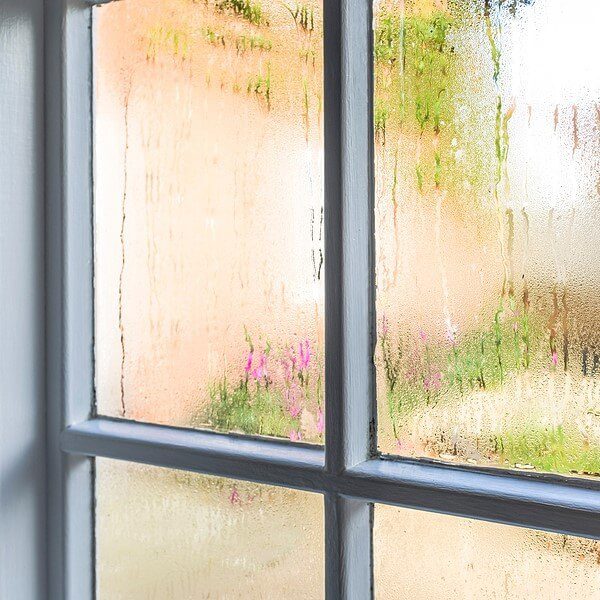The higher humidity in the summer that we experience in Winter Haven and throughout Central Florida can impact your central air conditioning system and its ability to keep your home and family cool. It’s not just outdoor humidity, but high indoor humidity can also negatively impact HVAC performance and it can also occur during the winter.


So, what is humidity anyway? In simple terms, humidity represents the amount of water vapor that is present in the air. When the humidity is high, there is more moisture in the air. As a result, you sweat more quickly, making you feel wet and sticky. For example, if your AC thermostat is set to 75°F and your indoor humidity is 75%, it really feels like 80°F.
On the other hand, when the humidity is low, there is less moisture in the air, and you feel drier and more comfortable. So, if you feel damp and warm even though the AC is blowing cold air, you may have high indoor humidity. According to the Mayo Clinic, relative indoor humidity of 30% to 50% is ideal for maximum comfort.
How Your AC Controls Humidity
Your AC not only cools indoor air but also reduces humidity. Your central air conditioning system draws the warm inside air to distribute refrigerated air through the vents to keep your home cool. At the same time, the evaporator coil condenses the unwanted heat into water vapor, which is discharged through the compressor outside your home, reducing indoor humidity. However, when the indoor humidity gets too high, your indoor space will feel warmer even at your desired temperature. Your air conditioner will also work harder, and you may notice fog or condensation on your windows. Your home may also feel damp and smell musty. High humidity can also cause mold and mildew to grow inside the house.
Causes of High Indoor Humidity
High indoor humidity can be due to various reasons, but air leaks and an oversized AC unit are the most common.
Air leaks: Cracks in doors, windows, and other areas in the house not only wastes energy, but it draws in the warmer, more humid outside air increasing indoor humidity. It is one of the most common causes of high indoor humidity. Caulking and weatherstripping to seal cracks can help prevent air leaks and help your HVAC system operate more efficiently.
Oversized AC Unit: An air conditioning unit that is too large for the space will cool the room too quickly and shut down before the evaporator coil has a chance to remove the excess humidity from the air.
Homeowners can reduce indoor humidity with a dehumidifier that removes the excess moisture in the air before the HVAC system circulates the conditioned air through the ducts and vents. Reducing indoor humidity improves HVAC performance and inhibits mold and mildew, and other problems that high humidity can cause.
If you have high indoor humidity, an air conditioning specialist like Florida Air Express can recommend one of Comfortmaker’s Air Conditioning units with temperature and summer humidity control or install a dehumidifier to improve indoor comfort and HVAC performance. Our trained technicians will inspect your existing HVAC system and recommend the dehumidifiers that are compatible with your system.